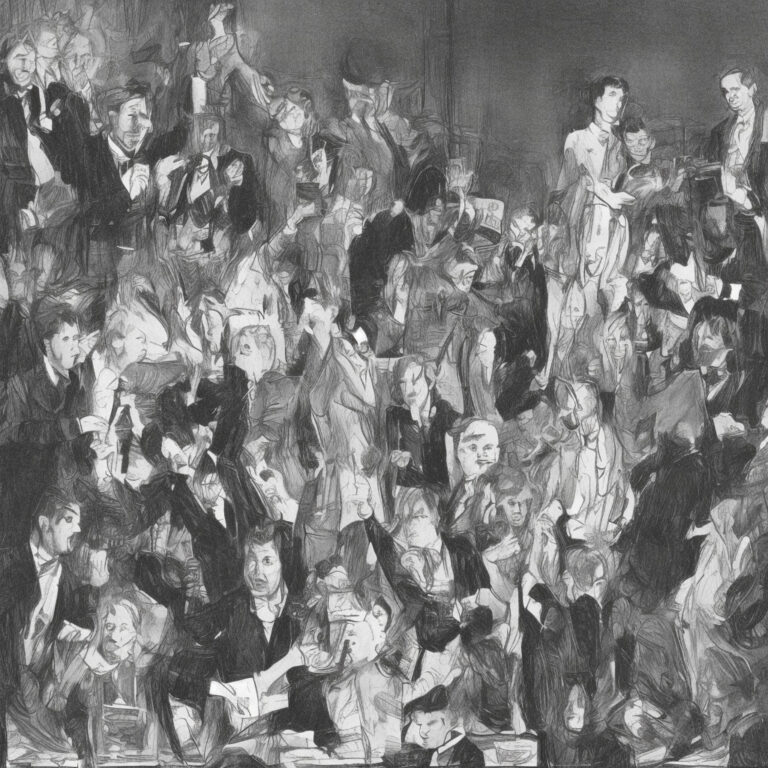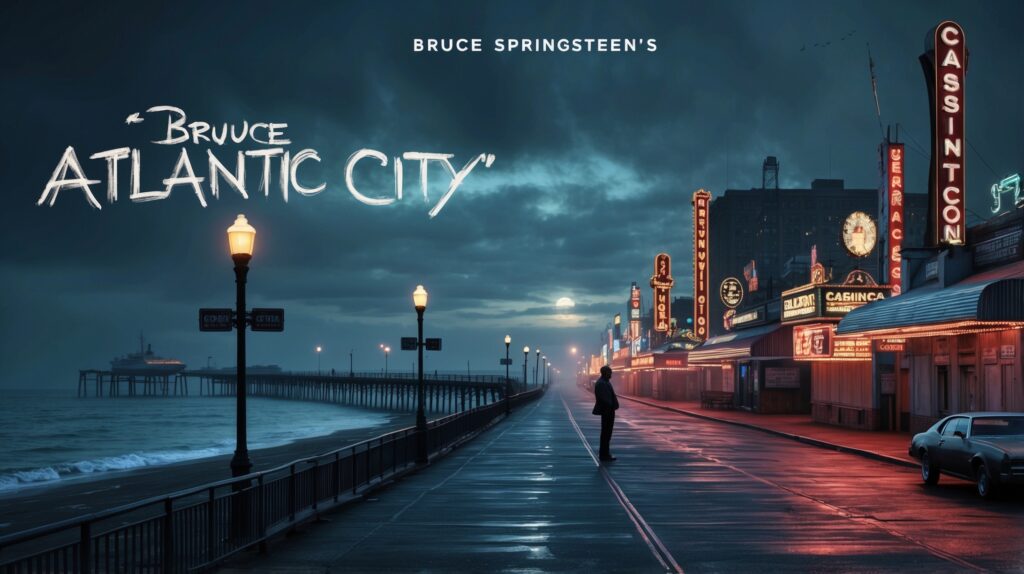🎸#DidYouKnow “Bigmouth Strikes Again” was inspired by James Dean’s rebel spirit? 🌟 The Smiths’ whip-smart humor meets guitar heroics 🎶 in this ’86 gem! 💎 #TheSmiths #MusicTrivia #ThrowbackThursday Read about it: tinyurl.com/5bb375rn
The Enigmatic Charm of The Smiths: A Look at Bigmouth Strikes Again
Timeless Wit and Infectious Riffs: Dive into The Smiths’ iconic “Bigmouth Strikes Again,” a song that remains as fresh and relevant today as it did in 1986, transcending time and solidifying the band’s influential place in alternative rock history.

They say time is a great healer, but when it comes to The Smiths, the taste for their music only gets sweeter as the years wash over. Formed in 1982, the iconic British band consisted of Morrissey (vocals), Johnny Marr (guitar), Andy Rourke (bass), and Mike Joyce (drums)—a quartet that left a lasting legacy in alternative rock history. Today, we take a deep dive into one of their most memorable tunes, the evergreen “Bigmouth Strikes Again.”
Off their third studio album, ‘The Queen Is Dead’ (1986), “Bigmouth Strikes Again” captures the quintessential Smiths sound. With Morrissey’s biting sarcasm and Marr’s jangly guitar riffs, the song delves into themes of self-effacement, anger, and frustration. The lyric, “And now I know how Joan of Arc felt,” hints at Morrissey’s wry humor, while the upbeat tempo makes it nearly impossible to resist tapping your foot along.
The creative process behind “Bigmouth Strikes Again” exemplifies the unique collaboration between Morrissey and Marr. Johnny Marr’s talent for infectious melodies and intricate guitars was the perfect counterpart to Morrissey’s distinctive baritone and poetic lyrics. One can’t help but admire the duo’s effortless ability to create music that is equal parts thought-provoking and toe-tapping.
However, it’s important to acknowledge the controversies that have surrounded the band and its frontman, Morrissey. His outspoken political views and contentious statements have often polarized fans and critics alike. While some admire his unapologetic outspokenness, others find it divisive and detrimental to the band’s legacy. This duality is not lost on “Bigmouth Strikes Again,” as the song itself is a self-critical reflection on the consequences of being too opinionated.
Despite the controversies, The Smiths’ influence on alternative rock cannot be denied. Their distinct sound and style have inspired generations of musicians such as Radiohead, The Stone Roses, and Oasis. In 2005, The Smiths were inducted into the UK Music Hall of Fame, and ‘The Queen Is Dead’ often ranks high on lists of the greatest albums of all time.
In conclusion, “Bigmouth Strikes Again” stands as a testament to The Smiths’ unwavering charm and brilliance. It is a musical journey that transcends time and remains as fresh and relevant today as it did in 1986. The lyrical wit, infectious melodies, and uncompromising artistic vision continue to captivate fans and solidify The Smiths’ place in music history.
Charting the Success
“Bigmouth Strikes Again: The Smiths’ iconic anthem that may not have topped the charts, but forever left its mark on alternative rock’s landscape.”

Released on May 19, 1986, “Bigmouth Strikes Again” was the lead single from The Smiths’ third studio album, “The Queen Is Dead.” Despite its memorable melody and witty lyrics, the song experienced a somewhat modest chart success. Upon its release, “Bigmouth Strikes Again” entered the UK charts at number 26, eventually peaking at number 11 just a few weeks later.
In terms of chart performance, “Bigmouth Strikes Again” fell short of matching the success of the band’s previous singles like “Heaven Knows I’m Miserable Now,” which had reached number 10 on the UK charts. This relative lack of chart success, however, does not detract from the enduring popularity of the song among The Smiths’ fanbase and its impact on alternative rock music.
Notably, the single’s B-side, titled “Money Changes Everything,” also garnered attention and airplay in its own right. This instrumental track, featuring Johnny Marr’s distinctive guitar work, would later be covered by the band Blue Aeroplanes.
While “Bigmouth Strikes Again” did not break any groundbreaking chart records, it remains a quintessential track in The Smiths’ discography, showcasing their knack for catchy melodies, poetic lyrics, and unmistakable sound. Its lasting influence on the indie rock genre continues to be felt today, solidifying its status as a classic track in the world of alternative music.
Dissecting the Irreverent Lyrics
Sweetness, sweetness I was only joking
When I said I’d like to smash every tooth
In your head
Oh, sweetness, sweetness, I was only joking
When I said by rights you should be
Bludgeoned in your bed
And now I know how Joan of Arc felt
Now I know how Joan of Arc felt
As the flames rose to her roman nose
And her Walkman started to melt
Bigmouth, la bigmouth, la
Bigmouth strikes again
And I’ve got no right to take my place
With the human race
Oh, bigmouth, la bigmouth, la
Bigmouth strikes again
And I’ve got no right to take my place
With the human race
The lyrics of “Bigmouth Strikes Again” by The Smiths are a perfect example of the band’s signature blend of biting wit, irreverence, and self-deprecation. At first glance, the lyrics may seem shockingly violent, with Morrissey singing about smashing teeth and bludgeoning someone in their bed. However, as the song continues, it becomes clear that these lines are meant to be taken tongue-in-cheek, with the narrator admitting that they were “only joking” with their violent outburst.
The song seems to deal with the theme of regret and the consequences of one’s own words and actions. This theme is particularly relevant to the time when the song was written, as The Smiths were known for their outspoken views and sometimes controversial statements during the mid-1980s. The era saw a great deal of political and social turmoil, with events like the miners’ strike and the rise of the punk movement challenging established norms and values.
One of the most memorable lines in the song, “And now I know how Joan of Arc felt,” alludes to the 15th-century French heroine who was burned at the stake for heresy. This line serves as a metaphor for the feeling of being misunderstood or persecuted for one’s beliefs or words. The inclusion of the anachronistic Walkman in the same verse adds a touch of humor to the otherwise dark image, highlighting Morrissey’s penchant for juxtaposing the serious with the absurd.
The chorus, with its repetition of “Bigmouth strikes again,” further emphasizes the theme of the consequences of one’s words. The narrator acknowledges that their big mouth has gotten them into trouble, and that they have “no right to take [their] place with the human race,” possibly referencing the feelings of guilt and alienation that can result from speaking out or going against the grain.
In conclusion, the lyrics of “Bigmouth Strikes Again” offer a biting yet humorous take on the heavy responsibility that comes with having a voice and using it to challenge the status quo. Through its blend of wit, self-deprecation, and nods to historical figures and events, the song captures the spirit of the mid-1980s and the zeitgeist of a generation grappling with questions of identity, expression, and social change.
Visuals That Resonate: The Unofficial Music Video for “Bigmouth Strikes Again”
Unofficially Brilliant: Fans breathe visual life into The Smiths’ classic “Bigmouth Strikes Again” with a nostalgic montage-style tribute.
While The Smiths never officially released a music video for their iconic song “Bigmouth Strikes Again,” that hasn’t stopped fans and creatives from interpreting the track visually on their own. In the absence of an official video, the internet has given birth to a plethora of fan-made videos and tributes that capture the essence of the song and the band itself. One such unofficial music video has gained popularity due to its striking visuals and artistic approach.
The fan-made video employs a montage style, fusing together vintage black-and-white footage of the band performing the song, clips from old films, and even some modern visuals that evoke the mood and themes of “Bigmouth Strikes Again.” This creative blend of visuals not only pays homage to The Smiths’ distinctive style but also connects the song’s message to both past and present. The choice of black-and-white imagery adds a nostalgic element, making it an appropriate tribute to the 1986 classic.
One of the most intriguing aspects of this fan-made video is how it interprets the song’s lyrics and themes. The lyrics of “Bigmouth Strikes Again” are known for their biting wit and dark humor, which the video manages to capture through its choice of clips and editing. The juxtaposition of different visuals, such as scenes from classic films and live performances, creates an engaging and evocative interpretation of the song.
The popularity of this fan-made video is a testament to the impact The Smiths and “Bigmouth Strikes Again” have had on popular culture. While there may not be an official music video for the song, the unofficial version showcases the creativity and passion of The Smiths’ fanbase. Through the collective effort of fans and creatives, the legacy of “Bigmouth Strikes Again” lives on, both in audio and visual form.
The Musical Mastermind Behind “Bigmouth Strikes Again”
Johnny Marr, the brilliant composer and guitarist of The Smiths, is the creative force that brought “Bigmouth Strikes Again” to life. Often celebrated for his unique, jangly guitar style, Marr has contributed a wealth of unforgettable tunes to the band’s discography. Among his many accomplishments, one cannot overlook classics like “How Soon Is Now?”, “This Charming Man”, and “Heaven Knows I’m Miserable Now”. Apart from The Smiths, Marr has also showcased his exceptional composing prowess through collaborations with other influential artists and bands such as Modest Mouse, The Cribs, and Electronic. As one of the most revered composers of his generation, Johnny Marr’s innovative work continues to inspire musicians and listeners alike.
Award-Worthy Lyrics and Impactful Appearances
Timeless Classic: “Bigmouth Strikes Again” captivates generations with award-worthy lyrics, influential sound, and iconic appearances in media.

Over the years, “Bigmouth Strikes Again” has received numerous accolades and has been featured in various forms of media, further cementing its place in the annals of music history. Although it was not officially recognized with any prestigious awards upon its release, the song has consistently ranked high in polls and surveys conducted by renowned music magazines and websites. Notably, in 2014, NME ranked the song at number 53 on their list of the “500 Greatest Songs of All Time”. It has also been cited as an influence by several contemporary bands and artists, showcasing how its iconic lyrics and melody continue to captivate new generations of music lovers.
“Bigmouth Strikes Again” has also made its mark in popular culture, making appearances in various movies, television shows, and video games. The song has been featured in the soundtrack of the 2009 film “500 Days of Summer”, which stars Joseph Gordon-Levitt and Zooey Deschanel, as well as the 2017 critically-acclaimed British film “England Is Mine” – a biographical drama about the early life of The Smiths’ frontman, Morrissey. Additionally, the song was included in the 2012 video game “Rock Band Blitz,” allowing gamers to play along to its infectious melody and rhythm.
The timelessness of “Bigmouth Strikes Again” is evident in the numerous cover versions that have been produced over the years. Several notable bands and artists have paid tribute to this classic track, including Placebo, who released a cover on their 2003 album “Covers”. In 2007, singer-songwriter Kate Nash performed a live version of the song during her appearance on BBC Radio 1’s Live Lounge, demonstrating the song’s enduring appeal and versatility. More recently, Canadian indie rock band Arcade Fire incorporated a snippet of “Bigmouth Strikes Again” into their performance of “Month of May” during a 2012 concert in Manchester, England – a fitting tribute to the song’s lasting influence on the indie rock scene.
As the years go by, “Bigmouth Strikes Again” continues to enjoy an esteemed place in both music history and popular culture. Its powerful lyrics, memorable melody, and undeniable impact on both fans and fellow musicians ensure that it will remain a beloved track for generations to come.
Diving into the Musical Structure
Let’s take a closer look at the musical structure of this iconic song, which is built upon an intriguing foundation that showcases The Smiths’ distinctive sound. “Bigmouth Strikes Again” is written in the key of C-sharp minor, which lends itself to the song’s melancholic undertone. The chord progression is relatively simple, yet effective, primarily revolving around the chords C#m, A, E, and B.
Johnny Marr, the band’s guitarist and co-songwriter, employs a mix of jangly arpeggios and power chords throughout the song, creating a rich and dynamic texture. This is particularly evident in the pre-chorus, where Marr alternates between the chords E and B, building tension as the song progresses into the chorus. Marr also utilizes a capo on the fourth fret of his guitar, which allows for an open-string playing style, contributing to the song’s signature jangle pop sound.
The tempo of “Bigmouth Strikes Again” sits at around 132 BPM (beats per minute), giving the track an upbeat and energetic feel. The rhythm section, comprised of drummer Mike Joyce and bassist Andy Rourke, provides a solid foundation for the song’s driving beat. Joyce’s drumming is characterized by a steady four-on-the-floor pattern, with occasional syncopated snare hits and hi-hat accents, adding a subtle complexity to the rhythm. Rourke’s bass lines, on the other hand, are melodic and fluid, complementing Marr’s guitar work and filling out the lower frequencies of the mix.
Another noteworthy aspect of the song’s structure is its use of vocal harmonies. Morrissey’s lead vocals are often doubled or accompanied by higher-pitched harmonies, creating a sense of depth and richness in the vocal arrangements. This is especially prominent in the chorus, where the harmonies emphasize the title phrase “Bigmouth strikes again.” The addition of these harmonies not only enhances the overall melody but also adds an element of polish and sophistication to the track.
In summary, “Bigmouth Strikes Again” showcases The Smiths’ ability to craft a deceptively simple yet highly effective musical composition. The song’s combination of jangly guitar work, driving rhythm section, and rich vocal harmonies come together to create a memorable and enduring classic that continues to resonate with listeners.







